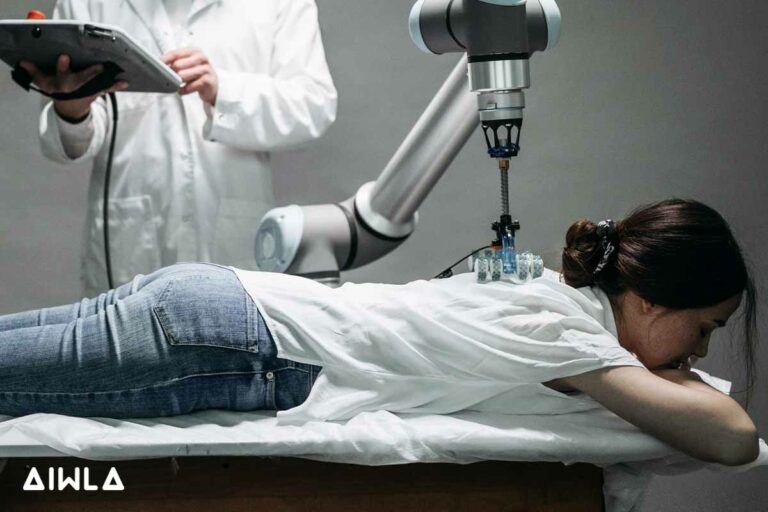Artificial Intelligence questions has emerged as it continues to advance rapidly. In fact, AI brings with it a plethora of questions and concerns, from the ethical implications of AI to its impact on employment, there is no shortage of queries surrounding this groundbreaking field.
In this article, we aim to address some common artificial intelligence questions and provide insightful answers that shed light on the intricacies and potentials of this remarkable technology.
Whether you are an AI enthusiast or simply curious about how it works, join us as we explore the frequently asked questions and unravel the mysteries behind artificial intelligence.
Table of Contents
Will Artificial Intelligence Replace Programmers?
In recent years, AI has made significant advancements in areas such as machine learning and natural language processing. These developments have led to the automation of certain tasks that were traditionally performed by programmers. However, it is important to consider that AI is not a replacement for programmers but rather a tool that can enhance their capabilities and streamline their work.
One way AI has impacted programming is through auto-generated code. AI-powered tools can write code snippets or even entire programs based on predefined requirements or examples. This automation can save time and effort for programmers, especially when dealing with repetitive or mundane tasks. However, complex programming tasks still require human ingenuity, problem-solving skills, and creativity.
Additionally, while AI can assist with generating code, it cannot fully understand the context and intent behind a programming task like a human programmer can.
Programming involves making decisions based on logic, algorithms, and business requirements – aspects that go beyond the capabilities of current AI technologies. Programmers possess valuable domain knowledge along with critical thinking abilities that are essential for solving complex problems.
Moreover, software development is not solely about writing code. Programmers play various other roles such as project management, system architecture design, debugging, collaboration with stakeholders, and continuous improvement of software systems. These non-coding responsibilities require human interaction and decision-making skills that AI cannot replicate.
Overall:
While AI has the potential to automate certain aspects of programming and improve efficiency in some areas, it is unlikely to fully replace programmers anytime soon.
Rather than being replaced by AI, programmers are more likely to embrace these new technologies as tools that enhance their productivity and enable them to focus on higher-level tasks that require human expertise.
It’s important to view AI as a tool for programmers rather than a direct competitor seeking to replace them entirely.
As technology continues to advance, it will be crucial for programmers to adapt their skills and expertise to the changing landscape, leveraging AI to their advantage rather than fearing it as a threat.
Will artificial intelligence replace lawyers?
While the advancements in artificial intelligence (AI) have proven to be transformative across various industries, including law, it is unlikely that AI will completely replace lawyers.
AI has already been utilized in legal research and document review, where machine learning algorithms can analyze vast amounts of data, identify patterns and similarities, and assist lawyers in preparing cases. This automation has significantly increased efficiency and accuracy in these specific tasks.
However, the field of law encompasses more than just research and document review. Lawyers possess a unique set of skills such as critical thinking, judgement, empathy, and negotiation abilities that are difficult to replicate with AI.
These skills are crucial for crafting legal strategies, counseling clients, interpreting complex laws, presenting arguments in courtrooms, and providing personalized advice.
It is more likely that AI will continue to be integrated into the legal industry as a useful tool for lawyers rather than completely replacing their roles.
The combination of human expertise with AI’s computational capabilities can enhance legal practices by allowing lawyers to focus on higher-level tasks while delegating repetitive or time-consuming work to AI systems.
Will artificial intelligence replace doctors?
While artificial intelligence (AI) has the potential to greatly enhance and complement the work of doctors, it is unlikely to entirely replace them.
AI technologies can play a significant role in assisting healthcare professionals with tasks such as diagnosing diseases, analyzing medical imaging, and suggesting treatment plans based on vast amounts of data.
These advancements can lead to more accurate diagnoses, improved patient outcomes, and enhanced efficiency in healthcare delivery.
However, the practice of medicine involves much more than just making diagnoses. Doctors possess a wealth of knowledge and experience that allow them to consider various factors, including patient history, emotional well-being, and individual preferences when making treatment decisions.
They provide personalized care, conduct complex surgeries or procedures, offer advice based on strong patient-doctor relationships, and navigate ethical dilemmas—all of which require human judgement and empathy.
In essence, AI is expected to augment the capabilities of doctors rather than replace them entirely. The collaboration between AI technology and medical professionals can significantly improve healthcare outcomes for patients in the future.
Will AI take over jobs?
The impact of artificial intelligence (AI) on jobs is a topic of ongoing discussion and debate. While AI has the potential to automate certain tasks and roles, it is important to note that it also creates new opportunities and can enhance job prospects in various ways.
AI is most effective at automating repetitive, mundane, and routine tasks across different industries. This includes tasks such as data entry, document processing, customer service interactions, and some forms of analysis.
By taking over these tasks, AI can free up human workers to focus on higher-level cognitive functions like problem-solving, creative thinking, and relationship building.
Although there may be job displacement in some areas due to the adoption of AI technologies, new job roles are also likely to emerge. These roles will involve developing and managing AI systems, interpreting and utilizing AI-generated insights, and providing an ethical framework for AI usage.
Overall, while certain job functions may be impacted or evolved by AI technology, there is still a fundamental need for human skills such as critical thinking, emotional intelligence, adaptability, and complex decision-making.
The most likely outcome is a collaboration between humans and AI technology to augment productivity and innovation in various industries.
Will AI take over humanity?
The idea of artificial intelligence taking over humanity is more in the realm of science fiction rather than reality. While AI has advanced significantly in recent years, it is important to remember that AI systems are designed and programmed by humans. They operate within predefined boundaries, algorithms, and limitations.
AI systems are developed for specific purposes and tasks, such as image recognition, language processing, or data analysis. While AI can outperform humans in certain narrow domains, it lacks the general intelligence and adaptability that humans possess.
Additionally, there are ethical considerations and societal safeguards in place to ensure responsible development and use of AI technologies. As we continue to advance AI research and deployment, it is crucial to prioritize ethics, transparency, and human-centered design principles.
Ultimately, the potential for AI to enhance our lives through automation and improved decision-making should be seen as an opportunity rather than a threat to humanity.
When AI invented?
Artificial intelligence as a field of study and research has been evolving since the 1950s. The term “artificial intelligence” was coined in 1956, during the Dartmouth Conference. However, the roots of AI can be traced back even further to the theories and ideas proposed by pioneers such as Alan Turing and John McCarthy.
Significant advancements in AI have occurred over the decades, with breakthroughs in areas like machine learning, neural networks, natural language processing, and computer vision.
These advancements have led to the development of practical AI applications that we see today, such as virtual assistants, autonomous vehicles, and personalized recommendations.
It is important to note that AI is an ongoing field of research and innovation. Scientists and engineers continue to push the boundaries of what is possible with artificial intelligence, contributing to its continuous evolution.
When AI becomes self aware?
Currently, artificial intelligence does not possess self-awareness. While AI systems can demonstrate impressive capabilities in tasks like pattern recognition, data analysis, and decision-making, they lack the consciousness and subjective experience that characterizes human self-awareness.
The concept of machines achieving self-awareness, also known as artificial general intelligence (AGI), is a topic of speculation and debate among researchers and experts. AGI refers to AI systems that can understand or learn any intellectual task that a human being can do. However, there is no consensus on when or if AGI will be achieved.
Developing AGI requires overcoming complex challenges related to cognition, consciousness, embodiment, emotionality, and ethical considerations. It is difficult to predict when these milestones will be achieved since they depend on future breakthroughs in AI research.
For now, AI systems remain tools designed to assist humans by automating specific tasks rather than exhibiting self-awareness or gaining full autonomy over humanity.
Who owns artificial intelligence?
Artificial intelligence (AI) is not owned by any single entity or individual. It is a broad field of research and development that involves contributions from various researchers, scientists, organizations, and industries across the globe.
Many companies, both large and small, invest in AI technologies and develop their own proprietary AI systems. These companies include tech giants like Google, Microsoft, IBM, and Amazon, as well as startups and research institutions.
Additionally, governments also fund AI research and promote its development for the benefit of society. Different countries have their own initiatives and policies related to AI.
In summary, AI is a collective effort involving numerous stakeholders from different sectors rather than being owned by a single entity.
Why artificial intelligence is important?
Artificial intelligence (AI) is important for several reasons:
- Automation and Efficiency: AI enables automation of tasks that were once time-consuming, repetitive, or dangerous for humans. It can optimize processes, reduce errors, and increase efficiency across a wide range of industries.
- Advanced Decision-Making: AI systems have the ability to process and analyze vast amounts of data quickly and accurately. This allows for better decision-making in complex scenarios, such as in business, finance, healthcare, or logistics.
- Personalization and Customization: AI technologies enable personalized experiences tailored to individual preferences and needs. From personalized recommendations on streaming platforms to customized medical treatments, AI enhances user experiences by adapting to specific requirements.
- Enhanced Safety and Security: AI can improve safety measures in various domains. For example, it can be used in autonomous vehicles to prevent accidents or in cybersecurity systems to detect threats and protect against cyberattacks.
- Innovation and Discovery: AI plays a crucial role in driving innovation and making new discoveries across scientific disciplines. By analyzing vast datasets, identifying patterns, and generating insights, AI assists researchers in areas such as drug discovery, climate modeling, or space exploration.
- Accessibility and Inclusion: AI has the potential to improve accessibility for individuals with disabilities by enabling assistive technologies like voice recognition or visual assistance systems.
Overall, AI has transformative potential across sectors by enhancing productivity, decision-making capabilities, personalization, safety measures, innovation, inclusivity, among other benefits.
Who invented AI?
Artificial intelligence (AI) can be traced back to several innovators and researchers throughout history. The concept of machines imitating human intelligence has captivated minds for centuries.
However, the formal birth of AI as a field is often attributed to a group of scientists who coined the term “artificial intelligence” during a conference at Dartmouth College in 1956.
Some notable pioneers in the field include John McCarthy, Marvin Minsky, Allen Newell, and Herbert Simon, who made significant contributions to early AI research. They laid the groundwork for various subfields of AI such as problem-solving, natural language processing, and machine learning.
It’s important to note that AI development is an ongoing process involving numerous researchers and organizations around the world. The field continues to evolve rapidly with advancements in technology and new breakthroughs in algorithms and methodologies.
How long has AI been around?
Artificial intelligence has been around for several decades. The term “artificial intelligence” was coined in 1956 during a conference at Dartmouth College, where the field of AI was officially established as a branch of computer science.
However, the concept and exploration of machine intelligence can be traced back even earlier with pioneers such as Alan Turing and his work on computational thinking.
Over the years, AI research has seen significant advancements and breakthroughs in areas like machine learning, natural language processing, computer vision, and robotics.
Today, AI is being utilized in various industries and applications, ranging from virtual assistants and autonomous vehicles to medical diagnostics and financial analysis.
How artificial intelligence works?
Artificial intelligence (AI) refers to the simulation of human intelligence in machines that are programmed to think and learn like humans. While there are different approaches and techniques within AI, one of the key principles underlying its functioning is machine learning.
Machine learning algorithms enable AI systems to learn from data in order to make predictions, identify patterns, or perform specific tasks without being explicitly programmed for each individual scenario.
Here’s a simplified overview of how AI works:
- Data Collection: The AI system gathers large amounts of relevant data from various sources.
- Data Preprocessing: The collected data is cleaned, organized, and transformed into a suitable format for analysis.
- Training Phase: The AI model is trained on the preprocessed data using various machine learning algorithms. During training, the model utilizes statistical techniques to identify patterns and relationships in the data.
- Model Evaluation: The trained model is evaluated based on its performance and accuracy in predicting outcomes or solving problems.
- Deployment and Inference: Once the model has been deemed satisfactory, it can be deployed and used for making predictions or performing specific tasks on new, unseen data.
It’s important to note that AI systems can employ different techniques such as neural networks, natural language processing, computer vision, or expert systems depending on the specific application or problem they are designed to address.
Additionally, ongoing advancements in AI research continue to enhance the capabilities and potential applications of artificial intelligence.
How artificial intelligence is transforming the world?
Artificial intelligence (AI) is transforming the world in a multitude of ways, revolutionizing industries and impacting daily lives. Here are some key areas where AI is making a significant impact:
1. Healthcare:
AI is allowing for faster and more accurate diagnosis of diseases, enabling early detection and personalized treatment plans. It also aids in drug discovery, robotic surgeries, and medical imaging analysis.
2. Transportation:
Self-driving cars powered by AI algorithms are being developed to enhance road safety and increase efficiency. AI also helps optimize traffic management, reducing congestion and improving transportation systems.
3. Finance:
AI algorithms analyze vast amounts of financial data to make complex predictions and inform investment decisions. It enables fraud detection systems, algorithmic trading, and personalized customer experiences.
4. Education:
AI-based tools provide personalized learning experiences tailored to individual needs, improving educational outcomes. Virtual tutors, automated grading systems, and adaptive learning platforms are just a few examples.
5. Manufacturing:
Intelligent robots driven by AI perform repetitive tasks with precision, leading to increased productivity and cost savings for manufacturers. AI-powered quality control systems improve product consistency.
6. Customer Service:
Chatbots powered by AI provide instant responses 24/7, enhancing customer support services across various industries. Natural Language Processing technology allows for more human-like interactions.
7. Cybersecurity:
AI helps identify and respond to cyber threats quickly through machine learning algorithms that detect patterns indicative of potential attacks or vulnerabilities in real-time.
These are just a few examples that showcase how artificial intelligence is transforming the world across industries by increasing efficiency, accuracy, personalization, and innovation in various domains.
What artificial intelligence means?
Artificial intelligence (AI) refers to the development and implementation of computer systems or machines that can perform tasks that typically require human intelligence.
It involves creating algorithms and models that enable machines to process information, learn from it, reason, problem-solve, and make decisions.
AI can be categorized into two types: Narrow AI and General AI. Narrow AI focuses on specific tasks and is designed to excel in a limited range of applications such as speech recognition, image processing, or autonomous driving.
On the other hand, General AI aims to replicate human-level intelligence across a wide variety of tasks.
The goal of AI is to develop intelligent systems that can perceive and understand the world, make complex decisions based on available information, continuously improve their performance through learning, interact with humans in natural ways (such as voice or gesture recognition), and ultimately enhance our lives by automating routine tasks, providing personalized recommendations, or solving complex problems.
Is artificial intelligence a threat to humans?
The question of whether artificial intelligence (AI) is a threat to humans is a topic that has been widely debated. While AI offers numerous benefits and potential advancements in various fields, there are also concerns regarding its impact on society.
One concern is the potential for job displacement. As AI technology advances, certain tasks traditionally performed by humans may be automated, leading to changes in the job market.
However, it’s worth noting that historically, technological advancements have often led to the creation of new jobs and industries.
Another concern is the ethical implications of AI. As machines become more advanced and capable of autonomous decision-making, questions arise about accountability and bias.
There are ongoing efforts to address these issues through the development of ethical frameworks and regulations surrounding AI technology.
In terms of existential threats, theories about superintelligent AI surpassing human intelligence and potentially posing risks are speculative at this point. Many experts emphasize the importance of ensuring safety measures are in place as AI systems develop further.
Ultimately, how we navigate the future relationship between humans and AI will depend on responsible development, collaboration, and ethical considerations to maximize the benefits while mitigating potential risks or challenges that may arise.
Conclusion: Artificial Intelligence Questions & Answers
In conclusion, artificial intelligence has revolutionized the way we live, work, and interact with technology. With its ability to learn, reason, and problem-solve like humans, AI has become an invaluable tool in various industries such as healthcare, finance, and transportation.
However, as AI continues to advance at a rapid pace, questions regarding ethics, privacy, and job displacement have arisen.
It is crucial for society to address these concerns and establish guidelines that ensure AI is used responsibly for the benefit of all. By staying informed and engaged in the development of AI technologies, we can shape a future where artificial intelligence enhances our lives while upholding our values and principles.












